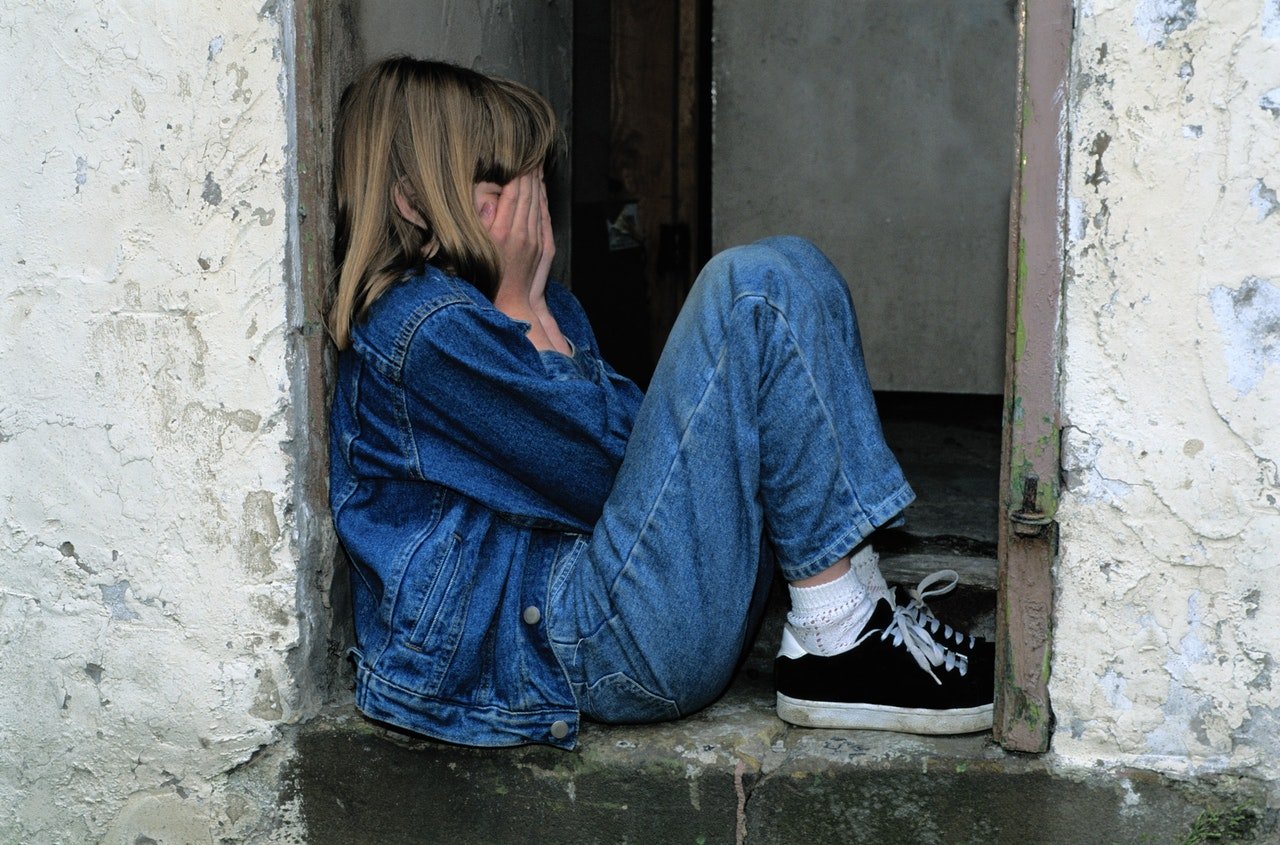Are You Or Your Child Impacted By The Effects Of Trauma?
Are you caretaking a child who has suffered unaddressed trauma and you want to help them process their pain? Have they been dealing with symptoms of depression or anxiety as a result of what happened to them? Or perhaps you’re the one suffering from the effects of Post-Traumatic Stress Disorder (PTSD) and could benefit from working with a counselor?
If Your Child Suffers From Trauma…
They may be experiencing terrifying memories, flashbacks, or nightmares related to their trauma, causing them unexpressed emotional pain. If your child is living with the effects of abuse and neglect, they may be depressed, anxious, or experiencing emotional distress. Their unaddressed trauma might make it difficult for them to concentrate or cause psychosomatic pain like headaches, stomachaches, or muscle tension.
If You Have Experienced Trauma…
You may feel lonely, afraid, trapped, helpless, and, at times, overwhelmed with terror. Perhaps you experience mood swings or find it difficult to form close or trusting relationships with others. And remaining isolated and withdrawn from those you love could be exacerbating your symptoms.
If you feel sad and hopeless, it could be affecting how you show up as a parent. You may wish you had a deeper emotional capacity to express and receive love from your children, but you feel distant and closed off. Perhaps you realize the trauma you’ve experienced will not resolve itself without therapeutic counseling.
Whether it’s you or your child who requires therapy, it’s possible to resolve the pain trauma has inflicted on you. With the proper treatment, you can free yourself of the agony and terror caused by trauma.
The Forms And Causes Of Trauma Are Numerous
"Trauma is perhaps the most avoided, ignored, belittled, denied, misunderstood and untreated cause of human suffering."[1] – Peter Levine
No one is immune to trauma—it can affect anyone at any age at any time. According to a study conducted in 2013, “89.7 percent of people surveyed in the United States have experienced some type of traumatic event.” This statistic doesn't include those who are so traumatized they are unable to speak about or report their trauma.[2]
Peter Levine sums it up this way: “Trauma is the basic rupture or loss of connection—to ourselves, our families, our jobs, and our world. However, this loss happens so gradually that we adjust to the changes over time, not realizing we are now a different person.”[3]
Whether the trauma we experience is a single event (acute), repeated (chronic), or occurs in various ways over a prolonged period (complex), without proper treatment, its effects can be lifelong and devastating. The effects of a traumatic event—such as Intimate Partner Violence (IPV), childhood abuse or neglect, natural disasters, debilitating illness, or bullying— can lead to a variety of distressful symptoms we cannot control.
We May Not Realize How Trauma Has Impacted Us
When trauma is the air that we breathe growing up, we may not necessarily equate what happened to us then with how we feel now. We often don’t connect the dots or acknowledge the impact trauma has on every aspect of our lives, such as when we feel anxious, depressed, or disconnected from others. This may be because we were raised to pull up our bootstraps and move forward without self-examination, our mentality being that if our parents were able to soldier on, so should we.
But you no longer have to endure unresolved emotional pain. With therapy, you can heal these psychic wounds and find a way to move beyond trauma or PTSD.
Therapy Can Help Both Parents And Children Resolve Trauma
As counselors, we recognize and respect the courage it takes our clients to make the first appointment to address their PTSD and trauma. If you have suffered alone throughout your life, allowing someone in to help you can be difficult. However, in therapy, you will no longer be alone in your pain. You will finally have someone you can trust implicitly to share your deepest, darkest terrors with and, perhaps, feel supported for the first time in your life. Most importantly, we aim to offer hope for the future.
And if you are arranging trauma or PTSD treatment for a child, you can rest assured that our practice has counselors who specialize in working with children and know how to address their unique needs and concerns. The therapist will listen to and empathize with your child, reminding them that there is good in the world. By teaching them useful skills that can help them manage the emotional and physical effects of trauma, your child will learn how to breathe easier.
What To Expect In Sessions
When working with anyone who has suffered trauma, your therapist will spend as much time as necessary building rapport, gaining trust, and ensuring a sense of safety. Without these crucial ingredients in place, you or your child will not feel comfortable opening up and sharing your experience. If anyone is experiencing suicidal ideation, safety planning and protection will be at the top of the list.
Our trauma-informed approach means that this is your space—you don’t have to talk about anything you don’t want to until you feel ready. Rather, you get to take the lead in determining what you want to focus on in your own timeframe. Our job is to help prepare you to confront your trauma, teaching you various coping skills and exercises along the way to manage your symptoms with sensitivity and compassion.
The Modalities We Use
Once you or your child feel ready to delve further, we offer an array of modalities that are beneficial for processing trauma. If it makes it easier for your child, we may utilize art or music therapy to explore traumatic events more abstractly or bring in a puppy to help them connect with unconditional love. Our approach will be tailored to your needs to suit your personality and stage of development.
In addition, we may utilize exposure or narrative therapy to help you gradually confront what you fear and provide a context for what happened. Trauma-focused Cognitive Behavioral Therapy (TF-CBT) offers strategies to restructure unhealthy belief systems and behavior patterns caused by trauma. And Dialectic Behavior Therapy (DBT) will teach you self-calming techniques such as mindfulness, visualization, meditation, and relaxation that can be beneficial in reducing hypervigilance, nightmares, and flashbacks.
No matter what route we take to help you heal, we are here to listen to you, support you, and help enable you or your child to talk about your experience within a place of safety and empowerment.
But You May Wonder Whether Trauma Therapy Is Right For You…
Is it necessary to revisit my trauma in therapy to feel better?
The idea of revisiting our trauma can be scary at first. Every day we spend trying to survive is another day we practice keeping the symptoms away, packed down tight so that we don't unravel. However, a therapist trained in treating trauma and PTSD can help you unravel the knots slowly, in a safe and caring environment. Although you may be reluctant to think about what happened, having the support of a compassionate therapist will make it possible to begin the healing process. Counseling enables you to be released from the effects of trauma and move your life forward.
The trauma I experienced happened a long time ago—I doubt I need counseling for it.
When we have spent years hiding from our trauma and pain, it’s common to forget about what happened altogether—or at least that’s what we tell ourselves. Why then are we insecure, scared to be alone, or perhaps suffering from Obsessive-Compulsive Disorder (OCD) and extreme phobias? In therapy, we can work with you to determine whether the underlying issues that causing distress are the result of trauma or perhaps stem from something else.
I have experienced too much trauma—therapy won’t help me.
As therapists specializing in trauma, our clients commonly tell us they are beyond help because of what they’ve been through. However, we assure them this is never the case. When you form a supportive relationship with an experienced trauma-informed counselor, healing is possible. We have helped many people just like you and look forward to helping you, too.
Trauma Doesn’t Have To Be The End Of Your Story
Working alongside a supportive therapist can help you process your trauma and PTSD symptoms, leading to healing and transformation. If you would like to find out more about trauma therapy with us, you may call 513-770-1705 or visit our contact page.





